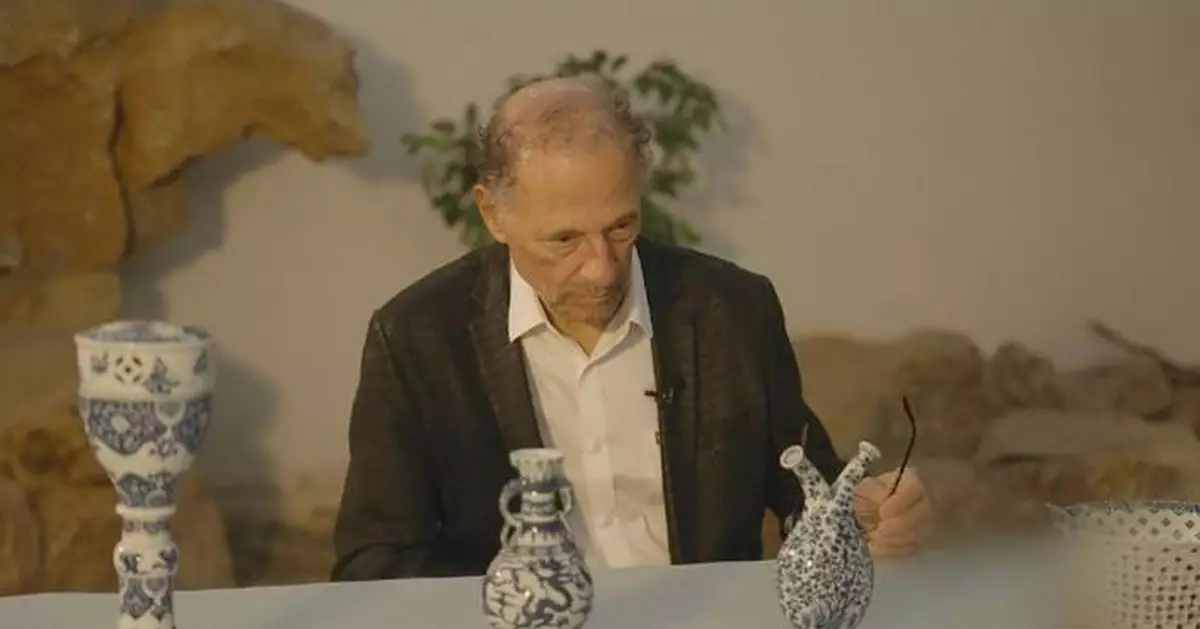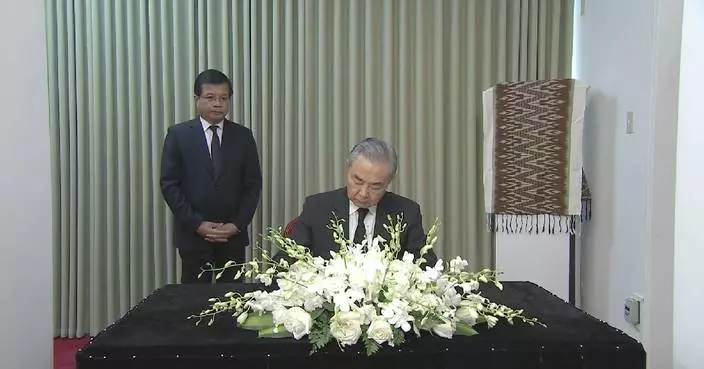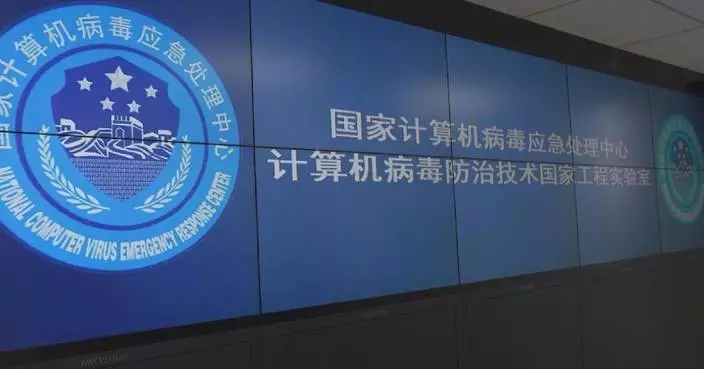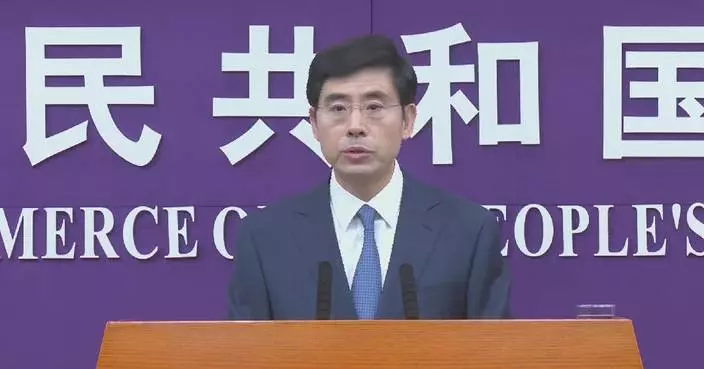An art collector from the Netherlands who generously donated a substantial number of cultural relics to the Shanghai Museum has emphasized that returning the objects to China was the correct and morally sound decision.
Henk Nieuwenhuys is the first foreigner to offer such a large number of cultural relics to the Shanghai Museum free of charge.
The donation included over 150 pieces of Chinese ceramics, bronzes, ivory carvings, and other artifacts. These relics belong to the period from the Shang Dynasty (1600 BC-1046 BC) to the Ming (1368-1644) and Qing dynasties (1644-1911), spanning nearly 3,000 years.
During the Ming and Qing dynasties, Chinese porcelain was shipped to the European continent by sea, enjoying great popularity in the European market.
Nieuwenhuys's grandfather, out of personal passion, purchased and collected a large collection of export porcelain, which he later passed down to Nieuwenhuys's father.
"I grew up with Chinese porcelain because my father had it. When I was a small boy, I saw my father and I help my father wash the porcelain because he did that himself. And I was intrigued that I saw men with long hair and ponytails, because in the Netherlands you don't do that," he said.
In 1991, after his father's passing, Nieuwenhuys inherited some of the collection. Moved by his family's love for Chinese art, he decided to expand the collection.
In 2007, at the age of 56, Nieuwenhuys visited Shanghai for the first time due to work. During his visit to the Shanghai Museum, he was fascinated by the royal porcelain displayed in the museum, leading him to consider finding a more suitable place for his own collection.
In 2008, he donated a total of 97 pieces of porcelain, treasured by his family for generations, to the Shanghai Museum.
"I think the collection was very dear to me, and you can always sell it and then you get money and what you do with money? You can only eat three meals a day, which I already do. So money doesn't help. And I think it is more important for history to get a good home for the porcelain where people can enjoy and look at it and understand and appreciate how Europeans would enjoy collecting Chinese porcelain and display it at their homes. It is to set an example that those objects should return," said Nieuwenhuys.
"And there's also a show of gratitude from the Chinese government and the Shanghai Museum for the donation I've made. I received a Magnolia Gold Award. It's a great honor. I'm not Chinese, I'm from the Netherlands and to get the highest award from the Shanghai government, that gives you a very special feeling. It also confirmed that you did the right thing," he added.
After donating his collection in 2008, Nieuwenhuys decided to move to China to start a new life.
He donated more precious artifacts in 2018 and 2019 to the Shanghai Museum.
After donating all his porcelain, Nieuwenhuys became fascinated with ancient Chinese bronze and pottery from the Han Dynasty (202 BC-220 AD).
"[These] in fact are stolen cultural art. Now, there are objects which have a special history which may have an additional interest. It's illegal to sell. The right thing to do is to give that back to China," he said.
Li Zhongmou, former deputy curator of the Shanghai Museum, said that the donation offers a unique opportunity for people to explore history.
"It is a missing piece in the collection of the Shanghai Museum. They are exceptional and serve as a quintessential representation of the Maritime Silk Road, illustrating the trade between China and the West during that time," said Li.
Currently, Nieuwenhuys has settled in Changchun City, northeast China's Jilin Province, where he enjoys the various kinds of convenient living conditions. Whenever he visits Shanghai, he always returns to the Shanghai Museum to reunite with his "old friends".
"I will stay here, I will not go back to Europe to live. I'll go to Europe to visit. And many things are convenient here. The way you pay with Alipay or WeChat, things are well organized in this country," he said.
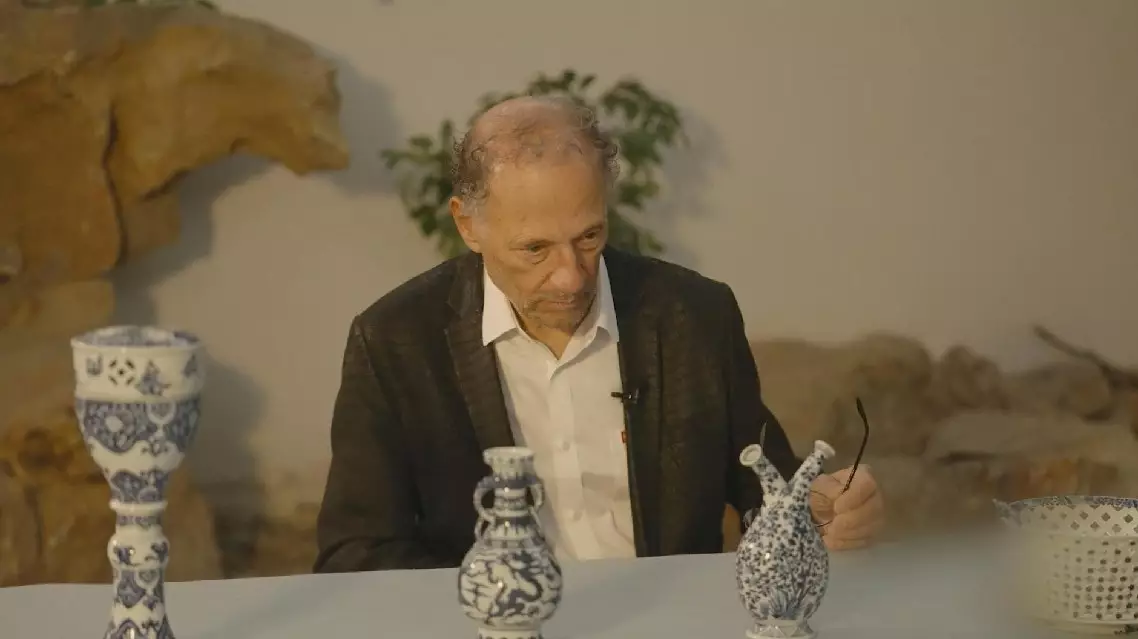
Let Chinese cultural relics come home: Dutch collector
Grassroots officials and students who teamed up with Chinese President Xi Jinping in the voluntary tree planting activity in Beijing on Thursday morning said afterwards they would commit more energy to protecting their country's natural heritage and greening efforts.
Xi, also general secretary of the Communist Party of China (CPC) Central Committee and chairman of the Central Military Commission, was accompanied by other Party and state leaders as they joined residents and local officials on the bank of the Yongding River in Beijing’s Fengtai District to plant saplings.
Xi waved to the crowd as he arrived at the site before picking up a shovel to help plant saplings of several different types of tree.
Xi took time to ask students from local schools about their studies, life and participation in labor and sports.
"We came here today to participate in this tree planting activity. What surprised us was that President Xi also took part. He worked alongside us, digging and building up the soil around the saplings. He has always been concerned about our lives and studies, and he encouraged us to work and study hard," said Lyu Shuochen, a student from the Fifth Primary School in Fengtai District.
"President Xi is very knowledgeable and understanding. He also encouraged us plant more trees to improve the air quality and the environment," said Gu Weichen, another student from the school.
During the event, Xi also talked with local grassroots officials, discussing the importance of preserving the nation's natural heritage.
"Every year, [the general secretary] takes part in the tree planting activity in the capital. He shovels the soil and waters the trees, which are truly touching. As environmental builders, we are determined to work together to make areas along the Yongding River greener and make the water clearer, so that local people can safely enjoy the riverside and truly understand the significance of ecological preservation," said Ding Hongwei, deputy director of the Fengtai District Yongding River Management Office.
"For us, participating in the tree planting activity with the general secretary is a vivid practical lesson in grassroots governance. Today, the general secretary also stressed that [environmental efforts should focus on] improving quality, boosting industry and benefiting the people. For us as community workers, it means we must deeply engage in the grassroots affairs. We need to strive for growth and do practical things to provide support for the residents and the people around us," said Qian Cheng, Party secretary of Tianlun Jincheng community in Beijing's Fengtai District.
"In addition to building the capital into a garden city, we also integrate the concept of harmonious coexistence between humans and nature into our daily life and work. We hope to create a better environment for everyone," said Lin Qiaoling, a Party committee member in Caoqiao Village, Yuquanying Subdistrict in Fengtai District.
Encouraged by Xi, the environmental champions at the site pledged to actively engage in public welfare activities, joining forces to contribute to the building of a Beautiful China and making the country even greener.
"President Xi told us while we were watering the saplings that watering the trees is like nurturing us children. I will follow what President Xi said. I want to become a teacher to educate and nurture others, and sow the seeds for them to grow their talents," said Wang Nanbixuan, another student from the school.
"As a primary school student in the capital, I am committed to planting more trees, working harder, and adding more green spaces to make our capital even more beautiful," said Chang Yuyang, another student from the school.
"With the personal involvement and leadership of the general secretary, the greening efforts in the capital will reach a new level, and citizens will be able to more directly enjoy the results of ecological civilization development," said Ding.
"As the general secretary said, we will continue working, one generation after another, to improve the greening efforts for the people, and contribute our own strength to ecological preservation in the capital and the whole country," said Lin.
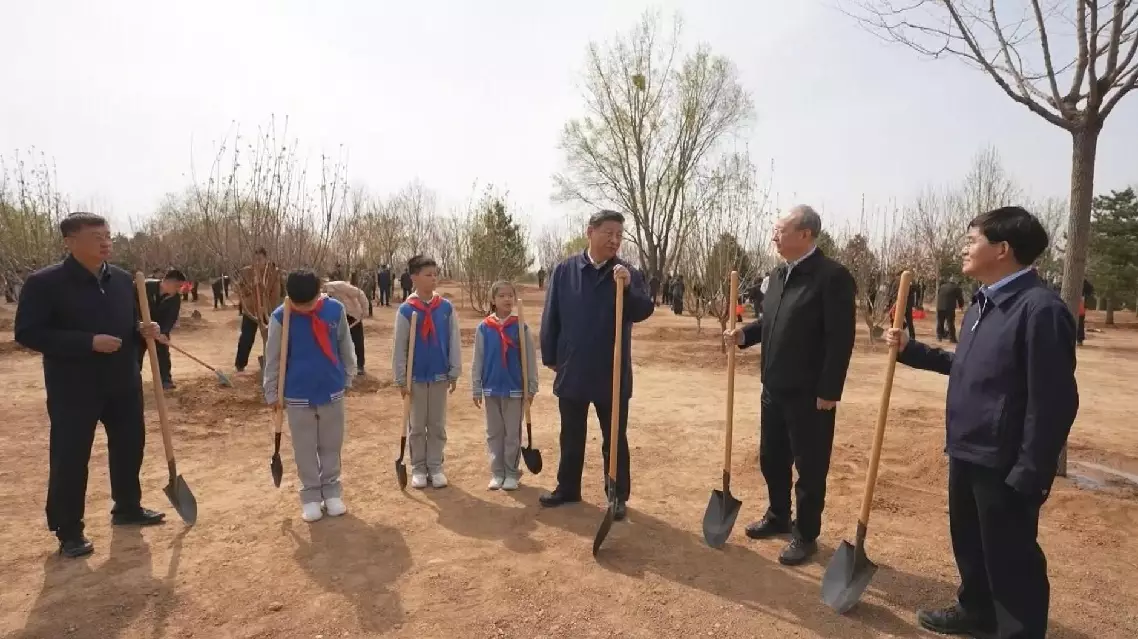
Planting trees with President Xi inspires new generation of environmental champions



